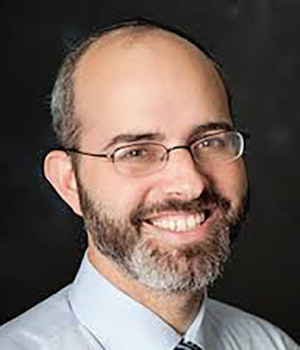
May these words of Torah serve as a merit le’iluy nishmat Menachem Mendel ben Harav Yoel David Balk, a”h, and Meira Chaya Nechama Bracha, a”h, bat David Mordechai Fishel sheyichyeh.
This week we learned Temurah 16. These are some highlights.
May We Learn Halacha From Prophecy?
Our daf teaches that laws were lost when Moshe Rabbeinu left us and we cannot use transcendent means to reclaim them. During the days of mourning for Moshe, 3,000 laws were forgotten. The nation turned to Yehoshua, Moshe’s successor, and asked him to restore the laws through prophecy. “When you will speak with Hashem, ask Him for the laws again,” the people requested. Yehoshua told them that he would not be able to do so; Moshe Rabbeinu told us in the Torah (Devarim 30:12), “lo bashamayim hi—the Torah is not in the Heavens.” This means that nothing was left in Heaven, Torah was brought down in its entirety, and prophecy cannot be employed to restore laws or to teach new laws. Later the Jews asked the great prophet Shmuel to restore the forgotten lessons through his power of nevuah. Shmuel also told the nation that he could not do so due to the verse (Vayikra 27:34) “Eileh hamitzvot—these are the commandments,” which teaches that after Moshe, no prophet is allowed to add any new laws or mitzvot. The Gemara seems to very clearly preclude using prophecy or any heavenly method to teach law. This Gemara seems to be ignored by one of the rishonim,
Rabbeinu Yaakov of Marves composed the book Shu”t Min Hashamayim in the 12th century. Apparently there were questions of law that Rabbeinu Yaakov could not resolve. He would then meditate, pray, and mention names of Hashem, pleading with the Almighty to reveal to him the answers. He would then fall asleep and in his dreams receive the answer. He asked, for instance, why we still have not been redeemed from exile even though so many great giants have asked whole-heartedly for the restoration of Zion. He was told that since the nation is not careful to only pray when pure, the impurity of the people is preventing the prayers from bringing down redemption. Tosfot Aharon (Rosh Hashanah 20b) has a lengthy discussion about the details of the molad of Rosh Hashanah and ultimately decides to rule in accordance with the view of Shu”t Min Hashamayim. How can we derive Jewish practice from the Heavens? Didn’t our Gemara teach that Torah is not in the Heavens and that prophecy cannot be used to teach new law? Sages are to use their intellect to resolve questions; why then would rabbis rely on what a Rishon was told in a dream?
Chida in his work Shem Hagdolim struggles with this question. He suggests that perhaps all agree that we are not to consult with the Heavens to restore laws, derive new concepts, or resolve doubts. We are to use the human mind. However, sometimes we have tried to use the human mind. We have discussed the issue and there are strong arguments for each point of view. When we cannot resolve an issue and there are good arguments for each perspective, then we can consult with the Heavens to reach a conclusion. The prophetic voice in these discussions is buttressed by human logic and that is why it can be utilized. Gemara Eiruvin (13b) teaches that after three years of Beit Shamai and Bait Hillel arguing with each other, a voice came out of Heaven and declared that halacha is in accordance with Beit Hillel. How can we follow this voice from Heaven if our Gemara teaches that “lo bashamayim hi”? The answer is that since the prophetic message is supported by human arguments, we may rely on it. (Mesivta)
By Rabbi Zev Reichman
Rabbi Zev Reichman teaches Daf Yomi in his shul, East Hill Synagogue.










